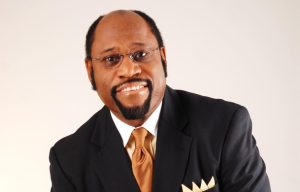
The teachings of Dr Myles Munroe will outlive him and will continue to inspire many the world over for their wisdom and meaning. Better known for his religious discipline, and as the leader of Bahamas Faith Ministies International, Munroe was also respected internationally as an author, lecturer, teacher, coach, and leadership mentor.
Munroe died in a plane crash on November 9, 2014 together with his wife, Pastor Ruth Munroe and seven other people, en route to a Global Leadership Forum that his International Leadership Training Institute had organised.
Munroe’s seminal works ring truest since his passing, one of his famous quotes about life is: “The greatest tragedy in life is not death, but a life without a purpose”.
We take a look at his most prolific work on leadership qualities and an interview he recently gave on this topic.
Leadership character
Munroe’s last book published November 2013, The Power of Character in Leadership: How Values, Morals, Ethics, and Principles Affect Leaders, draws on biblical comparisons.
According to Munroe, the book provides practical guidelines on how to build and protect one’s character. In the interview (see video below), Munroe explains that the book offers the reader an opportunity to do an inventory on themselves as well as their character convictions.
“Character is like a personal alarm system that protects you from breaking and violating your convictions and value system”
Here are the books biggest lessons on developing an ethical character for leadership:
1. How to protect your leadership influence and power?
Munroe says no one should think they are too smart or too safe to avoid the consequences of a lack of character. “Character is the number one plague of leadership today. Character is the most important balance for leadership. Character is like a personal alarm system that protects you from breaking and violating your convictions and value system” he says.
2. The importance of principles on leadership character
“Principles are values, standards and laws that you refuse to sell at the alter of convenience,” he says. Munroe says the world today needs leaders who see principles as being more than profits, public adulation and their public comfort.
3. Falling up instead of falling down
“People do fall and characters do collapse,” he says. But Munroe adds that the most important thing is what you do to restore your character when you’ve broken a code of respect, when you’ve committed an immoral act and violated people’s trust.
4. “Trust is an account that people put a deposit on the longer they have known you and the more you’re tested”
Munroe says many leaders have lost the trust of their companies, constituents, nations, followers, and families and find it difficult to regain it. Why?
“Because they lacked the one quality that would have protected their leadership and given them enduring influence. They lack the quality of moral force, or character,” he says.
5. Every human being is a leader over some domain as he or she exercises gifts and influence. That domain might be the halls of government, the boardroom, the classroom, the community, or the home. The book details what character is, what it means to develop moral force, and how to preserve your leadership influence so that it is both effective and enduring.
WATCH: Dr Myles Munroe short interview about his last book, The Power of Character in Leadership: How Values, Morals, Ethics, and Principles Affect Leaders.


